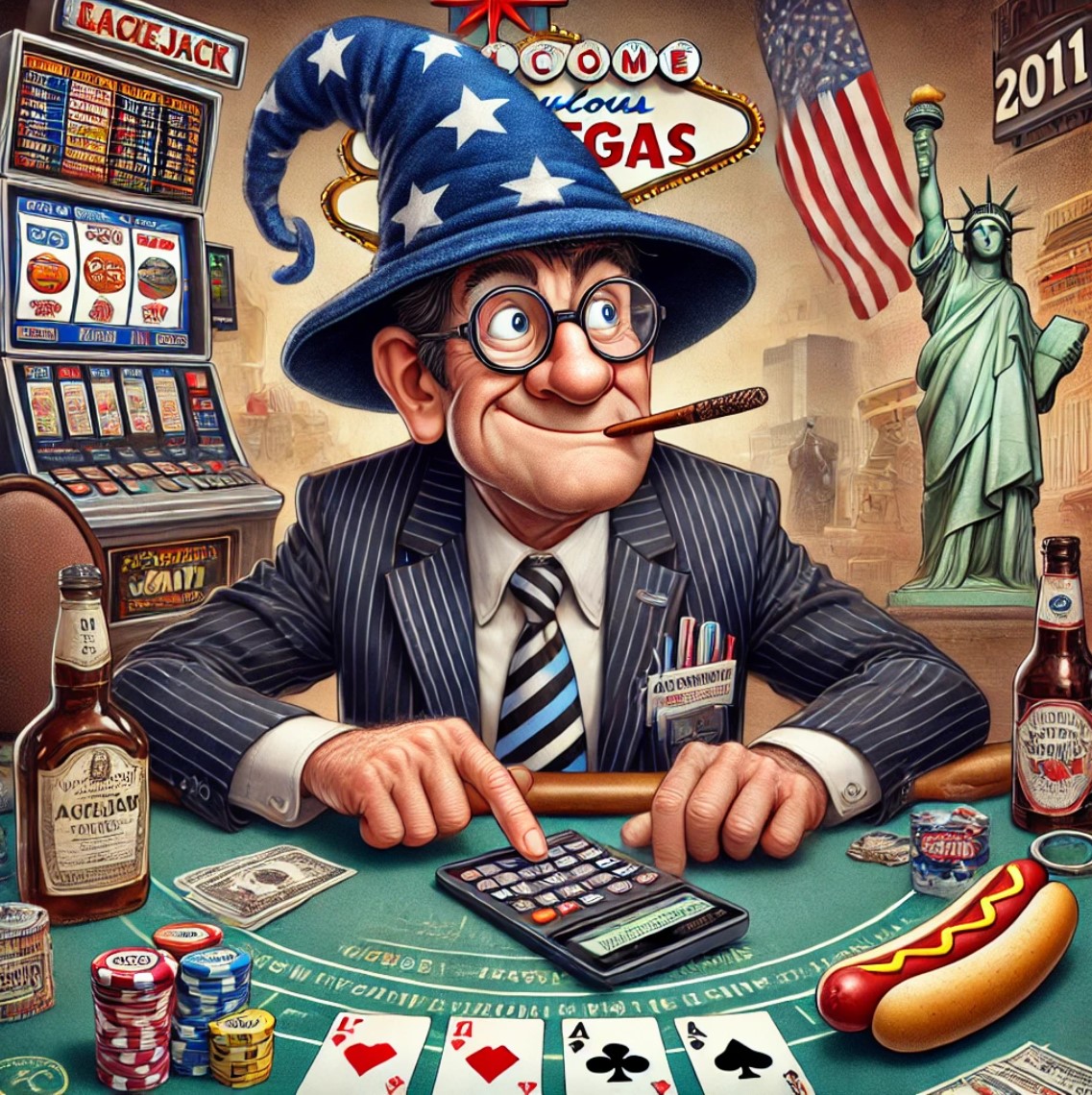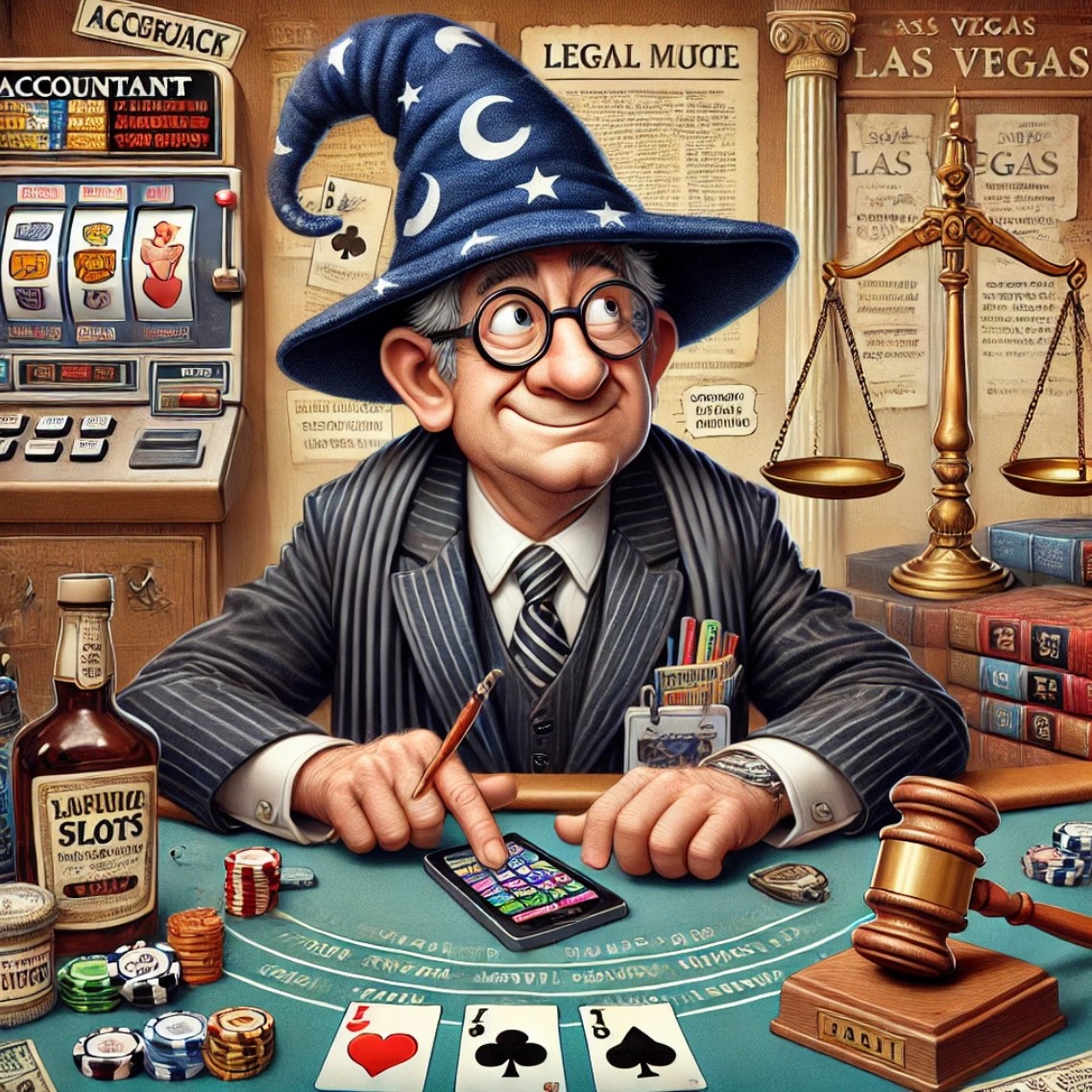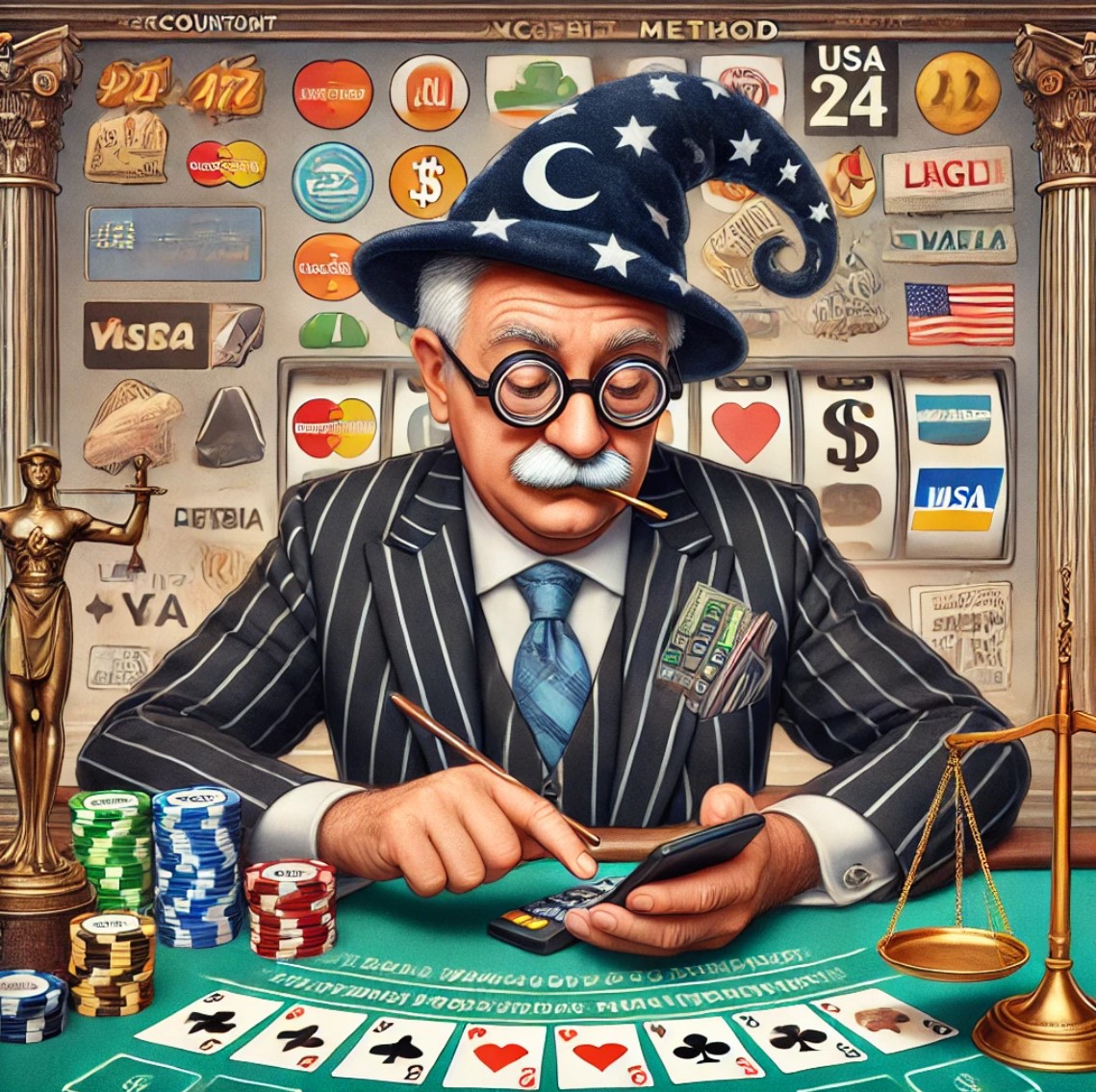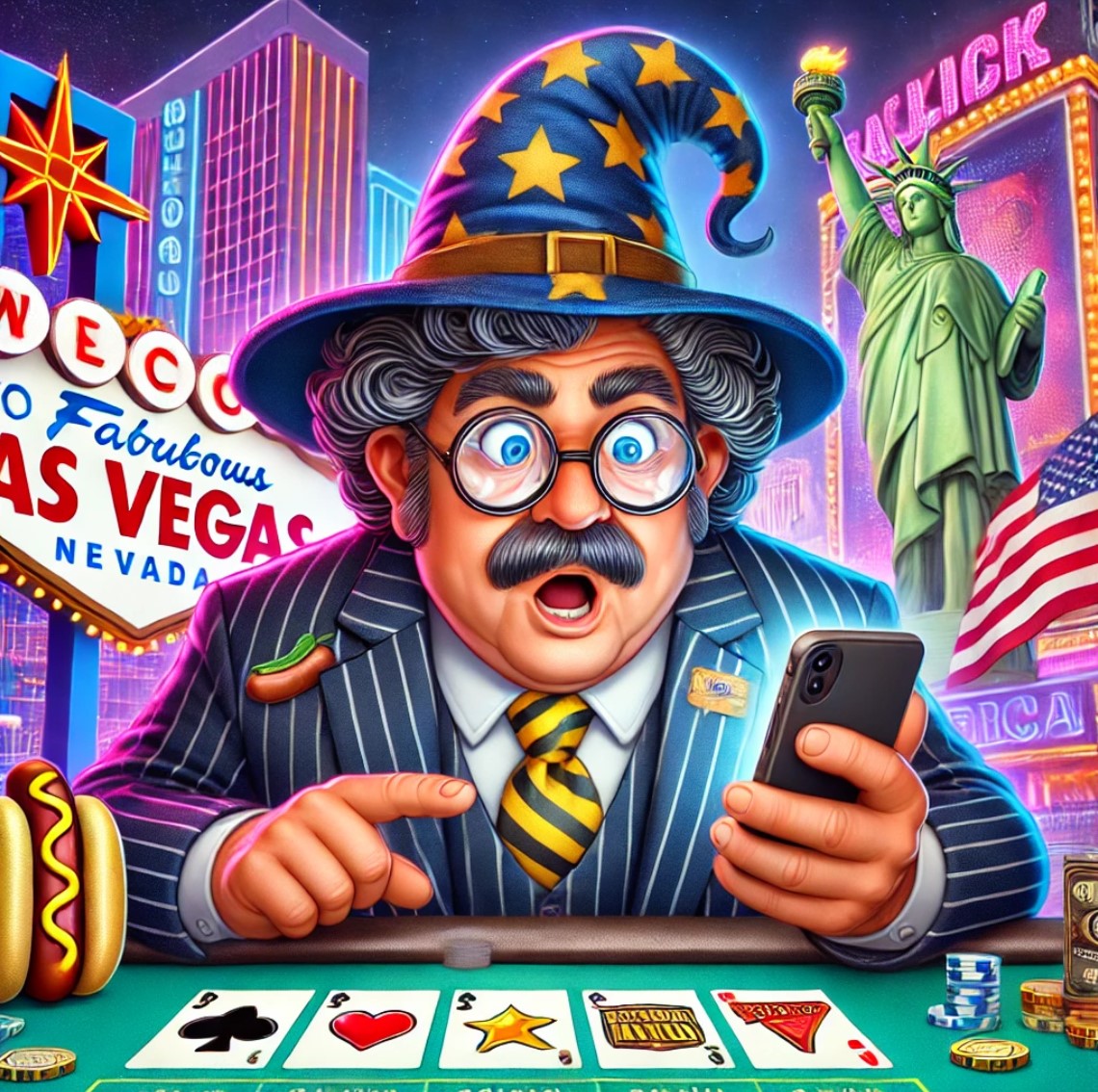On this page
Online Gambling in the United States
On this page
2006
On September 30, 2006, the United States Congress passed a port security bill on the last day before they recessed for the midterm elections. Hastily tacked onto this bill was something called the "Unlawful Internet Gambling Enforcement Act of 2006". President George W. Bush signed it 13 days later, on October 13.
The law basically says that nobody in the business of wagering may accept payments for it. So, contrary to popular belief, it doesn't make Internet gambling illegal but accepting payments for the purpose of wagering is illegal. In other words, in layman's interpretation, depositing or playing is not illegal, but only the acceptance of the deposit for doing so. I welcome you to form your own opinion. Here is the text from the United States Code, title 31, chapter 53, subchapter IV, section 5361:
The Law
No person engaged in the business of betting or wagering may knowingly accept, in connection with the participation of another person in unlawful Internet gambling.
- credit, or the proceeds of credit, extended to or on behalf of such other person (including credit extended through the use of a credit card);
- an electronic fund transfer, or funds transmitted by or through a money transmitting business, or the proceeds of an electronic fund transfer or money transmitting service, from or on behalf of such other person;
- any check, draft, or similar instrument which is drawn by or on behalf of such other person and is drawn on or payable at or through any financial institution; or
- the proceeds of any other form of financial transaction, as the Secretary and the Board of Governors of the Federal Reserve System, may jointly prescribe by regulation, which involves a financial institution as a payor or financial intermediary on behalf of or for the benefit of such other person.
For a while, there was a lot of uncertainty if this law was just for show or if the anti-Gambling Republicans in Washington really meant it. While some Internet gambling sites shut their doors to U.S. players out of an abundance of caution others kept them open.
 Ohio Recommended Online Casinos
Ohio Recommended Online Casinos
View All
2011
 Then, on April 15, 2011, a date known in the online gambling business as "Black Friday" things changed. The U.S. closed three of the largest U.S. poker sites and froze their bank accounts. At least that ended the ambiguity. Many smaller operators immediately closed their doors to U.S. players. However, not everybody did.
Then, on April 15, 2011, a date known in the online gambling business as "Black Friday" things changed. The U.S. closed three of the largest U.S. poker sites and froze their bank accounts. At least that ended the ambiguity. Many smaller operators immediately closed their doors to U.S. players. However, not everybody did.
Though online gambling appeared to be facing a death knell in the United States after Black Friday, a bit of hope came after Attorney General Eric Holder and the Department of Justice filed a legal opinion near the end of the year that declared online gambling in of itself did not violate The Wire Act. This opinion meant that internet betting in of itself was not considered illegal on a federal level, and instead opened the door for individual states to legalize and regulate their own online gaming laws.
To date, the states of Nevada, New Jersey, and Delaware are the only jurisdictions in the United States to have legalized online gambling in some fashion. Nevada has legalized online poker, while New Jersey and Delaware have legalized and regulated online casino games as well as online poker for players.
2015
I would estimate that about 90% of Internet casinos, sports books, and poker sites are closed to U.S. players. However, there are still about 10% that evidently find the U.S. market too lucrative to pass up. It is not difficult to find such casinos. Here at the Wizard of Odds and sister sites Latest Casino Bonuses & Casino Listings, we endeavor to make it easy to find U.S.-friendly Internet casinos.
2016
In 2016, there has been a lot of chatter related to online gaming in the United States, but little progress has been made in regulating the activity in more states. There has been talk of California adopting online poker, and Pennsylvania, as well as Michigan, have undertaken bills to legalize and regulate the activity.
On a federal level, the Restoration of America’s Wire Act has been introduced to Congress. The bill would effectively overturn the opinion issued by the Department of Justice in 2011 by making internet gambling illegal as it would stipulate that the activity violates The Wire Act. This bill was backed by Las Vegas Sands Chairman Sheldon Adelson, who bought influence using political donations to the Republican party. The bill stalled out due to a lack of interest by congressmen.
2017
Pennsylvania set out on the road to join Nevada, Delaware, and New Jersey as the fourth state to legalize online gambling. The first to expect is the online lottery, but other forms such as slots, table games, sports betting, and VGTs were all placed into works to be launched in the coming years. Illinois made an attempt at regulating online gambling, but just like all previous bills, the 2017 one also failed to pass into law. New Jersey pooled online poker players with Nevada and Delaware, increasing its poker revenues significantly.
2018
Sports
The US Supreme Court officially ruled against the outdated Professional and Amateur Sports Protection Act (PASPA) of 1992, which prohibited sports betting nationwide on a federal level. That opened up the possibility of enacting new liberal laws for online gambling state by state, and some states didn’t waste any time.
In fact, West Virginia didn’t even wait for the Supreme Court Ruling. They legalized in-state sports betting in March, two months before the decision was handed down. Eight more states legalized sports wagers before the year was over. By late summer 2022, there were over two dozen states where betting had been legalized with most of them allowing online action.
Due to conflicts with tribal gaming compacts and unrelenting political opposition in some states, the pace of new sports betting approvals is expected to slow going forward with some states possibly never coming on board.
Casinos
 In November, the US Assistant Attorney General requested a “slip opinion” from the Office of Legal Counsel and was provided a Memorandum entitled “Reconsidering Whether the Wire Act Applies to Non-Sports Gambling”. The DOJ published the opinion in January of the next year.
In November, the US Assistant Attorney General requested a “slip opinion” from the Office of Legal Counsel and was provided a Memorandum entitled “Reconsidering Whether the Wire Act Applies to Non-Sports Gambling”. The DOJ published the opinion in January of the next year.
2019
The US Department of Justice released a memorandum opinion in January reversing the 2011 Holder Opinion that determined the Wire Act only applies to sports betting and the next day, Deputy Attorney General (DAG) Rod Rosenstein gave businesses that depended on the earlier decision 90 days to come into compliance - effectively stating that the Wire Act applied to “any” form of online wagering.
While no enforcement actions were taken, the DOJ did threaten the Illinois Lottery with prosecution leaving no doubt in operators' minds that the Department did consider any and every form of online wagering, not specifically permitted, to be a crime.
The opinion and decision to implement it were fraught with legal problems and lacked any clear distinctions for any sort of “gambling” including state lotteries - many of which used out-of-state servers. One example is interstate Powerball ticket sales.
It was a poorly considered and far overreaching opinion, especially since in 2014 the U.S. 1st Circuit Court of Appeals determined in U.S. v. Lyons (Mastercard International Inc. Internet Gambling Litigation) that the Wire Act applied only to sports betting. Relief didn’t come until 2021.
2021
With the 2011 decision by AG Holder’s Office of Legal Counsel, most if not all states began moving their lottery systems online. Seven years later the 2018 opinion put nearly $100 billion in lottery sales in jeopardy, not to mention the offshore online casino business and even interstate poker liquidity pools.
After decisions and appeals wended their way through the courts for several years, on January 20, 2021, a unanimous panel of the U.S. Court of Appeals determined that the Wire Act did indeed only apply to sports betting in a ruling that favored the New Hampshire Lottery among others.
The court ruled that the 2018 opinion was far too vague and the court eviscerated technical arguments presented by the DOJ based on historical interpretations (case law) as well as the actual structure and context of the Wire Act - which of course could not cover internet casino gambling transmissions when it was enacted in 1961.
With a new administration in office, the DOJ’s window to appeal the decision closed on June 21, 2021. In early July the Garland DOJ issued a statement that said: “the government is not planning to seek Supreme Court review of the First Circuit’s decision.” Another chapter in the story closed, effectively reverting to the 2011 Holder DOJ opinion that the Wire Act applies to sports betting, and sports betting only.
It wasn’t until late November 2021 that global gaming and lottery giant IGT sued the DOJ to provide an answer once and for all. Since the issue never made its way to the Supreme Court, without broad declaratory relief all it would take is a new administration catering to ultra-conservative interests to see everything turned upside down again.
2023
Online casinos are legal and regulated in six states. Nevada still holds out with a poker-only offering along with in-state sportsbetting on a variety of apps. Delaware, New Jersey, Pennsylvania, Michigan, West Virginia, and Connecticut all have online casinos. With about 30 states offering sports betting and around 20 of them allowing online betting, the number of states with online casinos could increase substantially in the near term.
More than a decade and a half after UIGEA, even though online casinos should be legal at the federal level, financial institutions are still acting under guidance they were given by the US government in 2006 - which amounted to this - “Don’t process or facilitate online casino deposits or withdrawals unless you want big trouble”.
That makes casino banking a bit of a pain for online gamblers in the USA. Through the years different ways have been more convenient than others. It has basically been a cat and mouse game. A whole side business of >"payment processing" has bubbled up to move money from player to casino. These payment processors frequently change names and banks, seeking to disguise themselves as generic-sounding businesses.
For a while, that worked pretty well. Players made credit card payments to generic-sounding companies who then funneled the money to the casino. However, slowly but surely the credit card companies started declining such deposits. Visa debit cards, easily purchased at any drug store, also used to be pretty trustworthy, but now they all seem to prohibit any International purchase.
All it takes to get some cards to work is a phone call to customer service with a request to activate it for international purchases. Some cards from neo-banks like Chime allow customers to simply toggle a switch in the app to activate international purchases.
Different casinos use different ways. Whatever casino you may choose, I'm sure their customer support is happy to advise on making a deposit. If you don’t see an easy way to get your deposit in and your winnings out of the casino in the cashier or banking section, they might have a recommendation for you.
2024
Online casino regulation continued to grow in the US with Rhode Island launching a Bally’s branded online gaming site in March. Players can play slots and live dealer table games within the state's borders. Thanks to a quirk in the state constitution no digital card games or digital tables are allowed online. A few years before, lawmakers changed the constitution to allow live dealers inside casinos for the first time, and the wording of that change made it impossible for the new online operator to use digital random number generator table games and card games. The launch of Bally Casino Rhode Island gave the company a hat trick of sorts as they already have a monopoly on land-based gaming as well as the state sportsbetting app, the Bally Bet Sportsbook.
The seven states with online casinos are now Connecticut, Delaware, Michigan, New Jersey, Pennsylvania, Rhode Island, and West Virginia. While the law allows for online casino gambling in Nevada, the gaming commission has still decided to not come up with regulations for online slots and other games, preferring to only license poker sites.
According to Forbes,. 38 states, the District of Columbia, and Puerto Rico have legalized at least one form of sports betting since the May 2018 Supreme Court decision to invalidate the Professional and Amateur Sports Protection Act (PASPA).
A district court decision in 2022 should have clarified that the Wire Act only applies to interstate sportsbetting, not online casinos, and the floodgates might have opened for country-wide online gambling, but that has not happened yet. A careful reading of the decision in IGT vs US Department of Justice shows why. “The Court declares that as to the parties now before it, the Wire Act applies only to “bets or wagers on any sporting event or contest.”
That would seem to not establish a legal precedent for other companies or the wider industry to engage in interstate online gambling.
The only way to test that would either be for an operator in one state to serve customers in another state, or for a plaintiff to seek a broader declaratory judgment, neither of which is very likely to happen. Even if it did, there would still be the problem of dealing with the bad guidance government agencies such as the Federal Trade Commission gave US financial institutions after the poorly named and otherwise toothless UIGEA came into effect. Whereas the law should only apply to settling unlawful gambling debts it’s been taken to mean that all online gambling not regulated by a state is unlawful with no basis in law to support that position, especially after IGT vs US DOJ.
Nearly all online operators accept cryptocurrency payments nowadays and that is certainly a way to get around payment processing problems. Some operators will pay out winnings within fifteen minutes if you use crypto like Ethereum or Bitcoin and at least one other group of trusted operators (CasinoMax et al) pay within 24 hours just like clockwork.
US States
US Deposit Methods
 Most operators realize that not everyone is willing or able to use cryptocurrency, so they will have familiar and convenient options like Visa, Mastercard, AmEx, or Discover available. Most US-facing casinos can’t accept eWallet deposits but there are ways to use almost any kind of payment method to buy credits or even Bitcoin from a crypto exchange or even the casino “directly”.
Most operators realize that not everyone is willing or able to use cryptocurrency, so they will have familiar and convenient options like Visa, Mastercard, AmEx, or Discover available. Most US-facing casinos can’t accept eWallet deposits but there are ways to use almost any kind of payment method to buy credits or even Bitcoin from a crypto exchange or even the casino “directly”.
Payment vouchers can be purchased through the cashier at some places. Direct bank wires can also be an option if you aren’t in a hurry to gamble. So, while there might be a bit of a learning curve figuring out all the ways to move money into and out of online casinos US-facing operators will have options for you, either in the cashier or in conversation
Here are some things casino support may recommend:
Bitcoin
The cryptocurrency Bitcoin provides perhaps the best method to deposit or withdraw funds from a casino if you’re an American. The method sees each player account being given a unique address to send deposits to, and deposits are processed within seconds, with funds credited to your account instantly. We have a list of casinos that accept American and support bitcoin transactions.
There are about half a dozen highly trusted bitcoin-friendly casinos serving America that do instant crypto payouts and about as many again that always pay within 24 hours.
While you can’t deposit and withdraw using PayPal, you can purchase crypto to play with on Coinbase and withdraw back to a wallet there. Coinbase has provided instant cashouts to PayPal since 2020. By using this method with an instant pay casino, Americans can go from cashing out to holding the cash in less than half an hour.
Western Union
The way it works is the casino will give you somebody's name, city, and country. Said person will likely be somewhere like Costa Rica or the Philippines. You'll have about 24 hours to make a payment to this person. After you do, notify customer support to collect the payment. They rotate through lots of people to collect said payments so that Western Union doesn't get too suspicious about any one person. It is normal for any respectable size deposit, like $300 or more, for the casino to also add the Western Union expense to your balance.
A downside to this method is you have to get the details from the casino for who to send the money, travel to a Western Union branch (note that not all do International transfers), potentially wait in line, fill out the form, notify the casino, and then wait for the casino to confirm receipt of the money.
List of online casinos accepting Western Union
Gift Cards
The casino may suggest you purchase some gift cards at a seemingly unrelated business. For example, one that might sell artwork from Costa Rica. After you buy the gift card, tell the casino the gift card number and they will credit your casino account with the value of the card.
List of casinos accepting Gift Cards
Federal Express
I've seen less of this lately, but sometimes the casino may prefer you to send postal money orders by Federal Express. They usually specifically ask for Federal Express, as opposed to UPS or the U.S. International Express mail. As with Western Union, the casino will likely credit your account with any expenses paid.
A downside to this method is that it is tedious and time-consuming buying postal money orders. The casino will usually ask that each one not exceed a certain small amount, like $100, so you'll have to get lots of them for a large deposit. There is then the bother of filling out the Federal Express forms and potentially standing in another line.
Fortunately, making withdrawals is a lot easier. Most of the time you'll get a check from a Canadian bank, made out in U.S. funds, delivered via a courier service, within a week or so. A word of advice -- don't deposit said checks in an ATM. Often foreign checks must be deposited in person.
Depositing and Withdrawing when in the US
Please see below for a table of the withdrawal/deposit and banking term rankings. Click on the casino name for a detailed look at the withdrawal and deposit score of each casino and how we determined each. More information about deposit and withdrawal terms for US players can be found here.
US Online Casinos Deposit & Withdrawal Grades
View All-
Minimum Desposit Grade $10 (Crypto)/$500(Wire Transfer)A-
-
Cashout Limit Grade $100,000 (Bitcoin) WeeklyA++
-
Cashout Times Grade KYC: Up to 3 business days; Pending time: 24 hours; Bitcoin: Within 24 hours; Check/Wire Transfer: Within 15 business daysF+
-
Minimum Withdrawal Grade $20 (Crypto)/$500(Wire Transfer)B--
-
Low Rollers GradeF--
-
High Rollers GradeF--
-
Minimum Desposit Grade $10 (Bitcoin)/ $20 (Credit Cards)A-
-
Cashout Limit Grade $3,000 (One withdrawal per seven days) Check; $9,500 (One withdrawal per three days) BitcoinA++
-
Cashout Times Grade KYC: 24-48 hours; Pending time: 24-48 hours (except crypto 0-24 hours); Bitcoin: up to 24 hours; Check/Bank Transfer: 10-15 business daysF+
-
Minimum Withdrawal Grade $10 (Bitcoin)/ $100 (Check)A-
-
Low Rollers GradeC
-
High Rollers GradeD
-
Minimum Desposit Grade $10 (Bitcoin)/$35 (Credit/Debit Cards)A-
-
Cashout Limit Grade $4,000 WeeklyC++
-
Cashout Times Grade KYC: Within 2 business days; Pending time: Within 3 business days; Bitcoin: 24-48 hours; Bank Transfer/Check: 3-5 business daysD++
-
Minimum Withdrawal Grade $30 (Bitcoin)/$200 (Bank Transfer/Check)D++
-
Low Rollers GradeF-
-
High Rollers GradeA
Conclusion
In summary, making deposits from the U.S. to any Internet casino that will accept American players is not as easy as it was before 2006, but people do it every day. It adds another element to choosing a favorite place to play. All else being equal, operators with familiar, comfortable, and convenient options gain the upper hand.
Again, if you don’t find options that work for you on the web page, you can always check inside the cashier once you sign up. Some operators don't like to state how to make deposits on their websites. If you don’t find a comfortable in-out system in the cashier, just contact customer service for their advice. Given the time and fuss getting comfortable with something like PayPal > Coinbase > Casino > Coinbase > PayPal, I'd suggest making fewer and larger deposits if you are so inclined. Then make it last a while.
Remember, as with anything, where there is a will, there is a way.
Related Reading
- Comparing the Gambling Proclivities of the Countries
- Is it Legal to Gamble Online in the USA?
- Proclivity for Gambling (Part 1 of 2) The Most Gambling-Crazed States
- Proclivity for Gambling (Part 2 of 2) The Most Gambling-Crazed States
- Online Casinos for players from the US
- Power to the People!
- No Deposit Codes for Players from the United States










